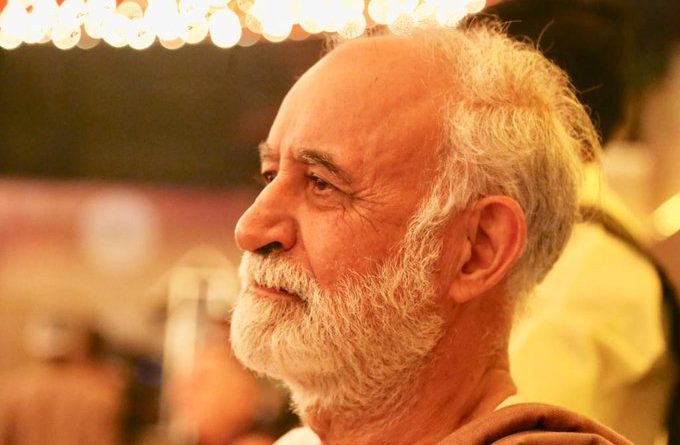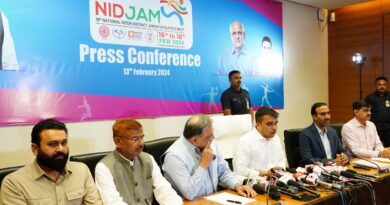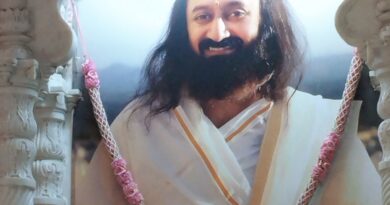MK Raina ready with film script on Pandit’s forced exodus from Kashmir
By Sukant Deep
New Delhi, Dec 5: Veteran theatre director, MK Raina has finished a film script on his familys forced exodus from Kashmir when militancy erupted in the valley in the 1980s.
“It is about what my family and hundreds of others had to face. Filmmaker Sudhir Mishra has shown much interest in it. Now let’s see who directs it — either him or me. If I don’t, I’ll be acting in it,” he tells IANS.
Raina has been quite busy lately — working in different mediums — OTT, films and theatre. The Director recently wrapped up an OTT series in which he acted, signed a film with Rajat Kapur and is working on his book on indigenous theatre of Kashmir.
Speaking on sidelines of the recently concluded Mahindra Kabira Festival in Varanasi where the classic play ‘Kabira Khada Bazaar Mein’ directed by him decades back was reimagined as a Rock Opera by Dastaan Live, he feels that whenever the younger generation reinterprets a production, it ignites new ideas, lends multiple dimensions, brings to light new thoughts and poses fresh questions to the audience.
“Precisely why it is important to keep our minds opened to reinterpretation and
reimagination,” Raina asserts.
Adding that circumstances change, new ideas form and never-before scenarios erupt in the society from time-to-time, he adds, “The images you created a long time back may not be understood or relatable now. Let us not forget, time and space are paramount for artists — after all, this is where we ‘play’. So many productions that were revived without changing anything fell flat. It is important that contemporary India and the world is reflected in the artwork.”
Raina, who has been going and staying in Kashmir for months for the past 20 years and working with urban and rural theatre artists there says, “It was impossible for me to abandon my people. Initially, I worked with urban artists and later Kashmiri folk artists (Bhands), where I got more results.”
He remembers the Bhands to be in terrible shape, with some people beating them up regularly and tearing their costumes and breaking their masks. They had not performed for a decade before he got in touch with them. Many militant groups there consider acting ‘unIslamic’.
“They started crying when they saw someone had come to meet and work with them. I started training their children from scratch — introducing them to their folk. I did old work with them for four to five years and then decided there was a need to do something new. There was this excellent young actor among them, and we took a year to adapt King Lear with multiple improvisations. In the end, the Bhands made it their own,” Raina tells about the play that has been staged in Kashmir, Delhi, Tamil Nadu, the North-East and Maharastra.
Now hoping that something permanent can be created for the Bhands — an institution that undertakes historic and performance research and ensure earnings for them, he says, “I am focussing on my book on indigenous theatre of Kashmir nowadays.”
For someone who believes in culture as a great healing power, especially in conflict zones, the Director smiles, “It plays the role in insulating live electrical wires, we have to know how to insulate. We do not have a choice.”
Lamenting that, unlike the west, performances were yet to open here fully, Raina is not really a fan of the digital medium which witnessed artists from different disciplines make it their own during the lockdowns.
“You need public places as a therapy for communities, that can’t be replaced. Don’t we all need catharsis, especially in these trying times? Digital just cannot match up with the real live thing.”
Pointing towards a lack of original playwrights in the country, he says that it is high time that state and central akademis start working towards it and organise workshops, seminars and meets of young writers.
“Nobody is ready to create seeds, and that is really sad. Why do you think I take up short stories many times and dramatise them for stage productions?” concludes Raina, who now wants to work on Sanskrit classics.




